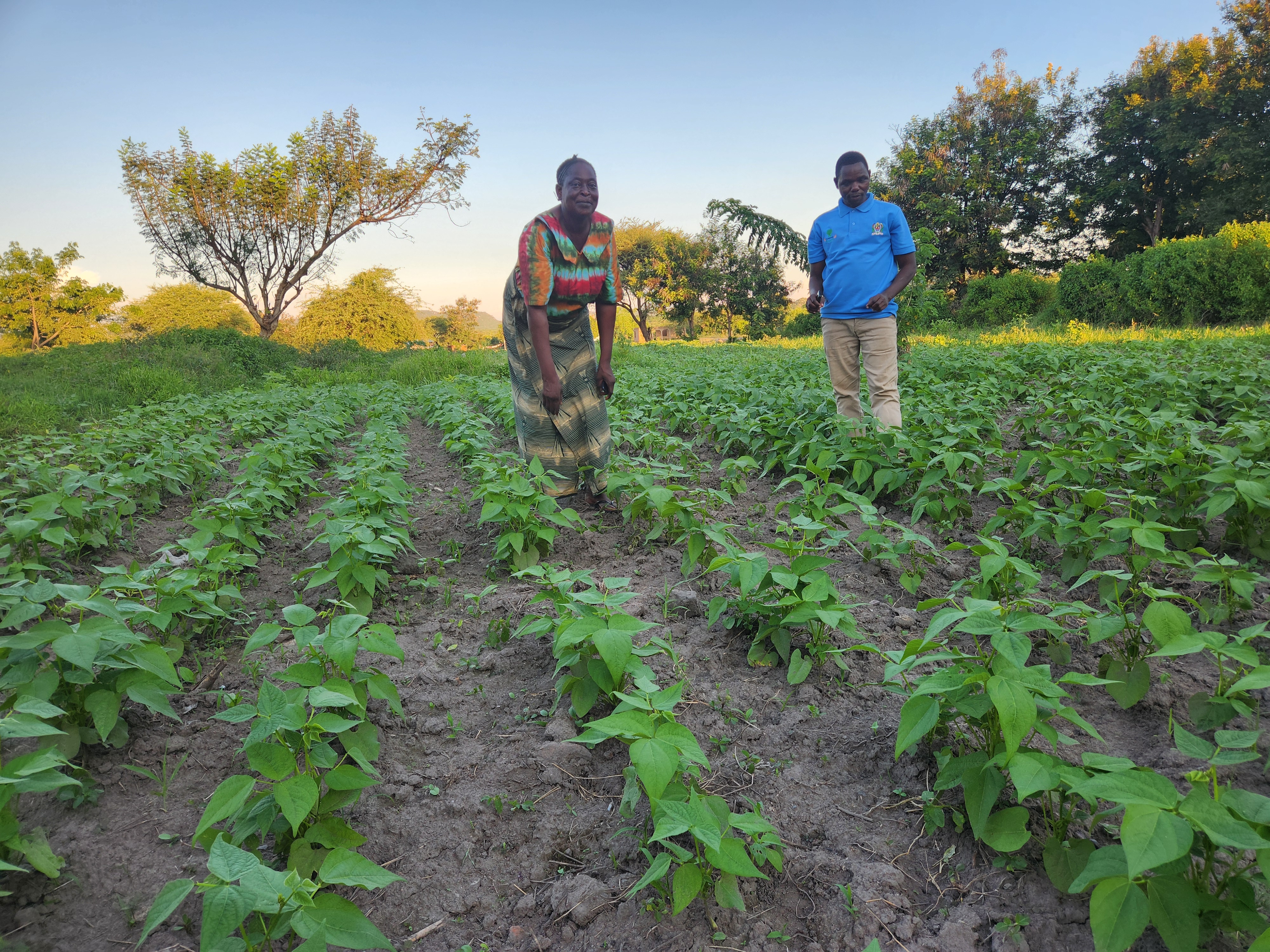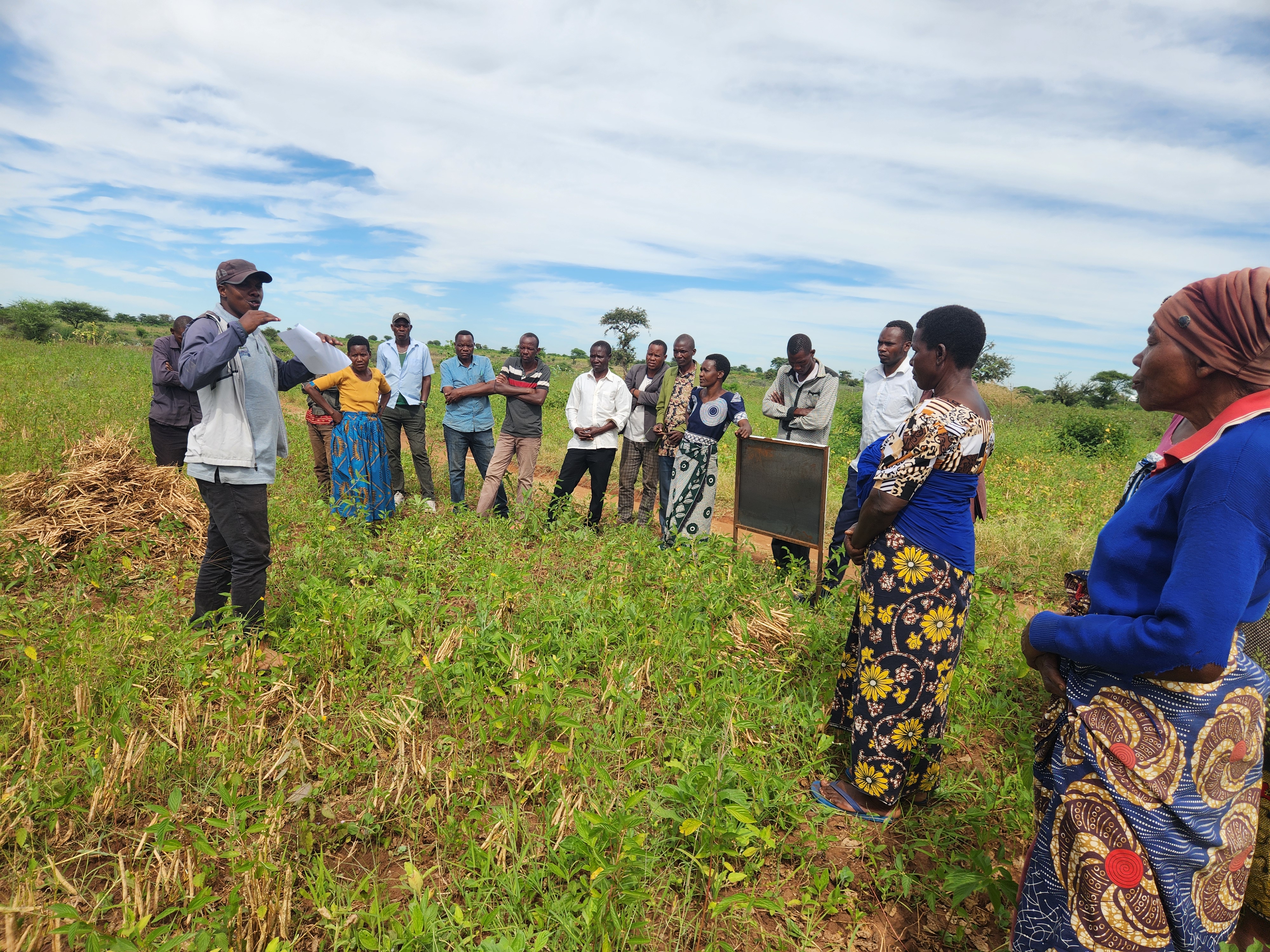In rural Tanzania, small-scale farmers suffer from recurrent extreme climate events, such as droughts, that cause crop failures and the death of livestock. The Farmer Field School (FFS) is an agricultural extension approach that supports climate-resilient farming and livelihoods.
A delegation from the German Development Bank (KfW) together with the Project Coordination Office (PCO) from the Tanzania Ministry of Water, the Management Consultant (MC), the Permanent Management Unit (PMU), and the Implementing Consultant (IC) recently visited one of the Field Farm Schools in Meatu.
The Simiyu Climate Resilience Project (SCRP), is using the Farmer Field School (FFS) approach which encourages learning-by-doing and offers practical field exercises to bolster community resilience against climate shocks and stressors.
Currently, the project has successfully managed to establish 106 Farmer Field School (FFS) groups in 106 villages from the 6 district councils of Simiyu region, being Bariadi DC, Bariadi TC, Itirima, Maswa, Meatu and Busega. The Farmer Field School (FFS) group in each village will have 2 class farms, thus bringing to a total of 212 class farms.
The project will support the FFS groups with maize, beans, horticulture crops, sweet potatoes, and rice seeds. At the moment, 50 FFS groups have successfully managed to plant beans and vegetable crops, whereby 38 FFS groups have planted beans and 12 FFS groups have planted vegetable crops (okra, and spinach).

The Ward Agricultural Extension Officer of Nyashimo ward, Mr. Nyahida Msunga with farmer Ms. Joyce Masula at a Farmer Field School (FFS) at Mwagulanja village, Busega DC.

Members of a Farmer Field School (FFS) at Mnadani village in Meatu district. participating in one of the FFS training about post-harvest for beans.
About FFS approach
The approach uses participatory methods to create an environment conducive to learning where participants can exchange knowledge and experience in a risk-free setting.
The field is the space where local knowledge and scientific insights are tested, validated, and integrated, in the context of local ecosystem and socio-economic settings. Community-based problem analysis is the entry point for a FFS group to develop a location-specific curriculum.
FFS activities are field-based, and include experimentation to solve problems, reflecting a specific local context. Participants learn how to improve skills through observing, analyzing, and trying out new ideas in their fields, contributing to improved production and livelihoods.
The FFS process enhances individual, household, and community empowerment and cohesion and has proved to strengthen not only the technical skills and decision-making capacities of farmers but also to significantly influence the community as well as intra-household dynamics.
Financed by the Green Climate Fund (GCF), the German Government through KfW and the Government of Tanzania, the Simiyu Climate Resilience Project (SCRP) aims at increasing the climate resilience of rural and urban households in the Simiyu Region by improving water supply, sanitation, and agriculture and at improving policies and regulation for cross-sectoral action towards climate adaptation.
Financed by the Green Climate Fund (GCF), the German Government through KfW and the Government of Tanzania, the Simiyu Climate Resilience Project (SCRP) aims at increasing the climate resilience of rural and urban households in the Simiyu Region by improving water supply, sanitation, and agriculture and at improving policies and regulation for cross-sectoral action towards climate adaptation.








